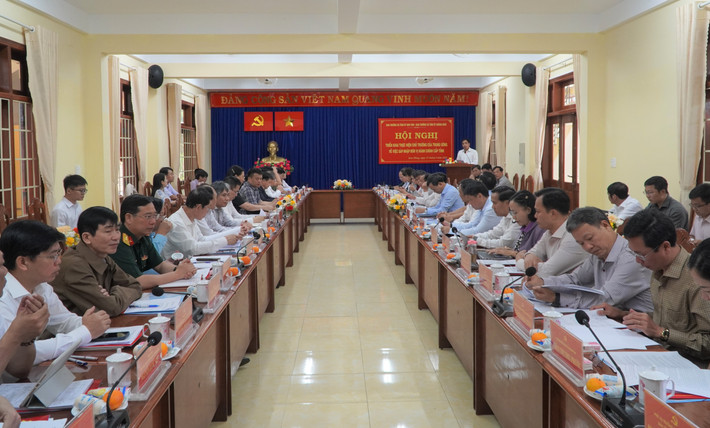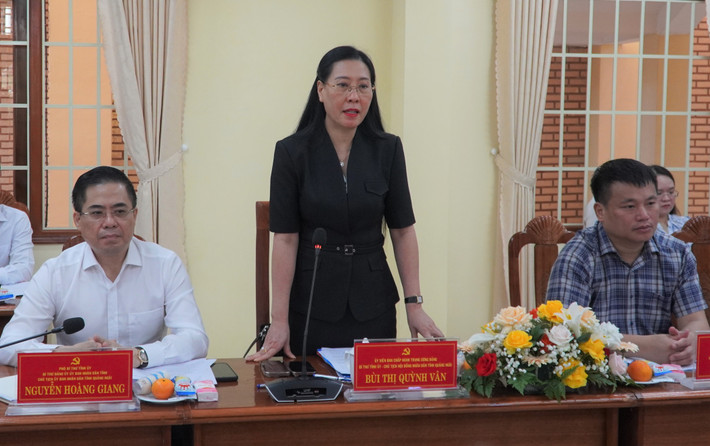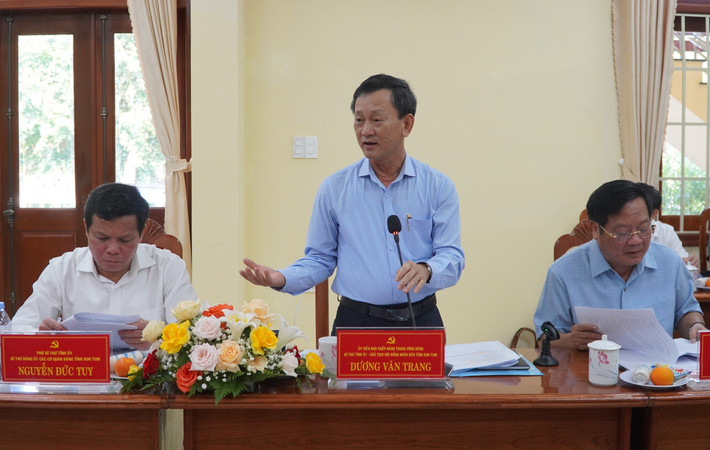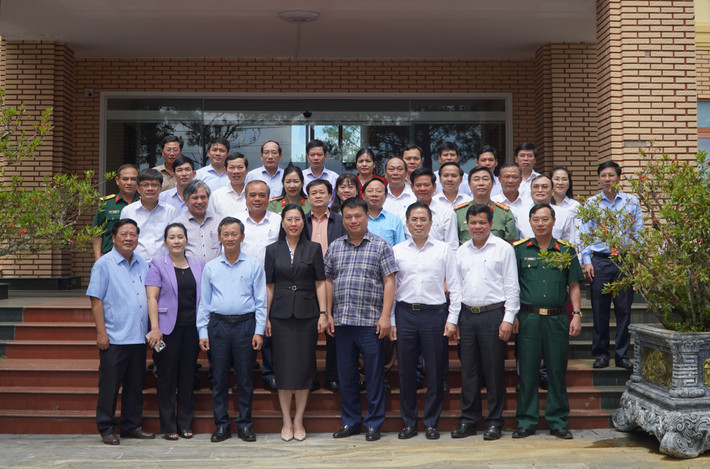
The two provinces reached a high level of agreement in principle on the merger plan, paying particular attention to specific factors such as historical traditions, culture, ethnicity, religion, beliefs, customs, geographical location, natural conditions, and the local communities. At the same time, emphasis was placed on ensuring national defense and security, promoting socio-economic development, achieving sustainable poverty reduction, and guaranteeing the effective operation of the political system after the merger.
The two sides also discussed and agreed on important issues such as specific policies between the two provinces, organizational structure plans, resource allocation, and personnel matters after the merger, especially the upgrading of National Highway 24 and the implementation of the Quang Ngai - Kon Tum expressway to ensure effective infrastructure connectivity between the regions of the newly merged province.

The Provincial Party Committee's Organization Department and the Departments of Internal Affairs of the two provinces are tasked with receiving feedback, finalizing the Project Proposal and Implementation Plan, and ensuring that it is submitted to the Ministry of Internal Affairs and the Government before May 1, 2025.
To effectively implement the merger policy, the Standing Committees of the two provinces agreed to establish six joint working groups, including: a working group on congress documents; a working group on administrative units; a working group on organization, structure, and staffing; a working group on personnel; a working group on local policies; and a working group on finance, budget, and public buildings and assets. Quang Ngai province will be the unit responsible for signing and issuing decisions to establish and assign specific tasks to these working groups.
The working groups will be responsible for preparing the content for regular meetings between the Standing Committees of the Kon Tum and Quang Ngai Provincial Party Committees, with a frequency of once every three weeks, alternating between the two provinces. These meetings are expected to last until September 1, 2025, to ensure close coordination and timely resolution of any issues arising during the merger preparation process.

In addition, the two provinces also agreed to assign a focal point officer to be in charge of coordinating between their respective agencies, ensuring smooth and efficient exchange of information.
Speaking at the conference, Central Committee member, Secretary of the Kon Tum Provincial Party Committee, and Chairman of the Provincial People's Council, Duong Van Trang, emphasized that the merger of the two provinces is a major policy with strategic significance, requiring high consensus and thorough preparation. He expressed his hope that the two localities would soon complete the merger process and quickly and effectively put the administrative apparatus into operation.
Kon Tum Provincial Party Secretary Duong Van Trang noted the need to quickly develop plans to arrange suitable housing and living conditions for the merged staff, especially young officials who do not yet have stable accommodation. Moving between distant locations, such as from Quang Ngai to the border region of Kon Tum, will be very difficult without proper logistical preparation.

Therefore, the Secretary of the Kon Tum Provincial Party Committee proposed that a plan should be developed soon to upgrade the 60km road connecting Pờ Ê commune (Kon Tum) with Ba Tơ town (Quang Ngai) to shorten travel time before the Quang Ngai - Kon Tum expressway is completed.
The agreement on the policy and the initial implementation of preparations for the merger between Kon Tum and Quang Ngai demonstrate the proactive spirit and high sense of responsibility of the Party committees and governments of the two provinces. This process is expected to bring long-term benefits in terms of organizational structure, save resources, and create new impetus for development in the Central Highlands and Central Coastal regions.
Source: https://daibieunhandan.vn/quang-ngai-va-kon-tum-thanh-lap-6-to-cong-tac-thuc-hien-viec-sap-nhap-post410338.html













































































































Comment (0)